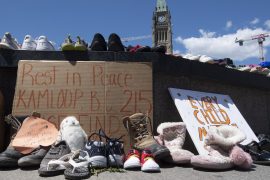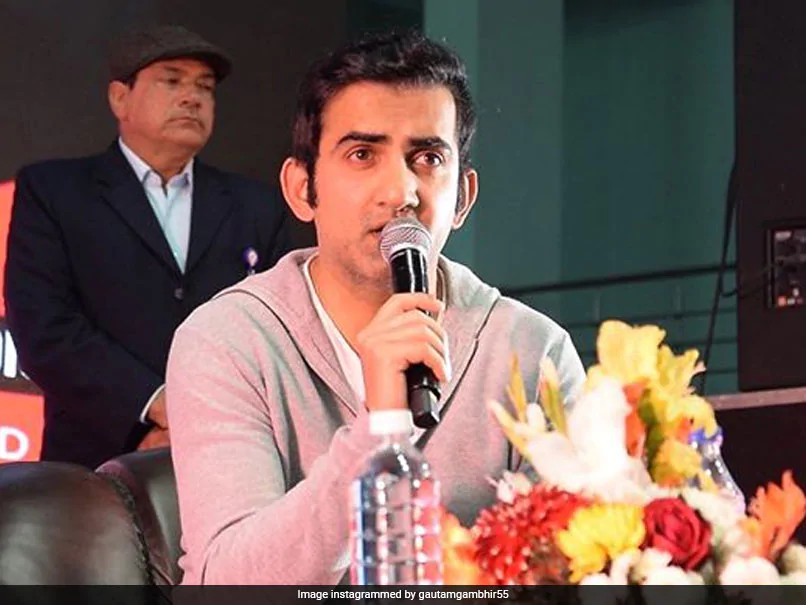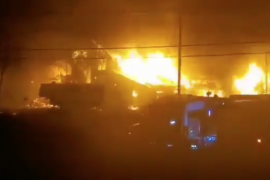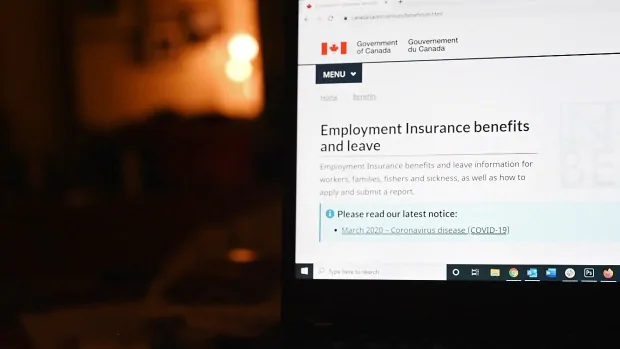
India-born Amarjit Sohi has been the mayor of Edmonton in Canada since October 2021. Above all, he seeks to strengthen the cultural diversity of the city, in which many immigrants live, and also to establish the position of a nocturnal mayor to improve the organization of cultural life.
Photo: Private
Amarjit Sohi is the mayor of Edmonton, Canada. The 58-year-old hails from India, was a political theater producer in his youth and wrote, among other things, a play about a ship full of immigrants from India sent back from Canada. I am for a group of Afghan theater and human rights activists in Edmonton who have taken refuge in the town of Sohi after months of fleeing. This coincidence leads to a quickly arranged video interview. Sohi, like most employees in the city of Edmonton, is working from home because of the pandemic. In the group’s arrival from Afghanistan, he also sees his own life reflect little.
Amarjit Sohi, thank you for the opportunity to talk to us and for your curiosity about the workers of Afghanistan.
It’s great that these people are here now. I would also like to meet him personally and hope that when will it finally be possible after the end of covid.
How was your approach to political theatre?
When I came to Canada, I felt very lonely as an expatriate. So I started a theater group shortly after. We mainly talked about the problems that migrant groups face, about all the discrimination that we face. My start was very simple. I previously helped with a production. Then he asked me if I wanted to play. And I thought to myself, why not? It was only a small role, but I liked it.
What kind of theater was that?
Mainly theater for very little money. We were all volunteers. We rented space, often gymnasiums, from schools or community centers. The design of the platform was actually very economical. We couldn’t buy a good background. It was more or less about storytelling, telling stories using dramatic means. But it also had a good side, there was hardly any distance from the audience. All this helped me make friends and express myself better. We have also been invited by different communities. We did this for a long time. The last time I acted in a play was in 2004. We were also invited to other cities, such as California.
Was the audience primarily the Indian community, or did you include people from Bangladesh, Pakistan and other countries?
No, we played in Punjabi. So it was for the people of India, the people of Punjab.
Have you written any plays yourself?
Yes, it was documentary and was based on the story of 1914, when a ship full of Indian expatriates left India and docked in Vancouver. But people were not allowed to go ashore. He was held hostage for two months. After that they were forcibly sent back. When they reached India they were so disappointed, weary and humiliated that many of them soon joined the liberation movement against the British Empire.
The ship was the Komagata Maru?
Absolutely. This was a very famous story of that time and also an important event of the liberation of India. Solidarity campaigns were underway in Canada and the United States for those aboard the ship at the time. But Canada refused entry. Finally a tug pulled the ship out of port. When it returned to Calcutta, the British police there brutally attacked the people on board. Many were arrested, many died. This was the basis of the play. We played it in Canada in 1988 in several cities.
How did the Canadian population react to the plays? Did the locals come at all?
Our audience was mostly from Punjab. We also played in Punjabi. We had a lot of support in this community. They knew us as theater makers and street theater makers and organizers of other events in the city. We also participated in social justice activities. When it came to welcoming newcomers, we were there. We have also organized protests against human rights violations in other countries, working closely with activists in Nigeria and some organizations in Latin America. We were of course also involved in events in India at that time.
You were imprisoned in India for your theater work.
At that time I went back to India to learn to play theater professionally. I wanted to work with theater artists there, learn new street theater techniques, and then move back to Canada and work here full time as an actor. But then I was arrested and spent 21 months in jail.
What was the reason for the arrest? Allegations of terrorism…
These were the allegations. But it was not true at all. At that time, Indian law allowed people to be imprisoned for up to two years without charge.
It doesn’t necessarily sound like the rule of law.
No. But I was held by this law. And so they didn’t even need a single piece of evidence. The judge did not have to present anything. But at the end of those nearly two years, there was a lot of international pressure on the government to release prisoners like me. The Canadian government also pressed. All the charges he had were eventually dropped and I was released. But being in prison changed a lot for me, my whole future was different.
Then you turned your back on theater and got into politics?
I have always been associated with politics. When I returned to Canada in 1999, after being released from prison, I resumed work in my theater group for the first time. We also organized many other events. But I had to find a job to support myself. So theatrical activities were reduced.
How did your experience in prison and your activities in political theater affect you as a politician?
I think my whole life experience goes into it, the first step for me to come here and settle down as an expatriate at the age of 17. But I was also shaped by the support, the friendliness and the openness I got from the Canadian people, the people of the province of Alberta, the whole social support system. So I’m very glad that the group you told me about from Afghanistan, which also does political theatre, has now moved to Edmonton. I hope for them that they will have the same experience as I have in the city. Of course only the positive ones, not the negative ones, so that they can find their place in society. And I hope that they will not lose connection with their art, their theater work, nor their culture and their language.
You mentioned negative experiences. What jobs were you doing here in Edmonton?
Discrimination at school and work, which already existed. Being alone used to bother me too. At first I hardly spoke any English.
Based on your own experience, what advice would you give to people who are new to Edmonton, Canada?
I would say to them: don’t let loneliness discourage you. Don’t be discouraged by the discrimination you experience. Rather look at society as something that helps everyone to move forward, rise, just like I got up because of society. Above all, trust the power of your community, your culture, your organization. And lean on the city you’re in. Because the city offers newcomers a lot of help and support, from public libraries and local public transportation to cultural, sports and leisure facilities. Much of it is free, especially for low-income people. And of course the parks we have, our school system, the free healthcare. So please, use all of this to grow yourself.
Then it is the job of the city to identify and fill gaps wherever they are. Can even make it easier: Edmonton is a very international city. One in three residents here were not born in Canada.
Does this mean that you, with your Punjab birthplace, in Edmonton are no exception?
Absolutely.
I read that you started working as a bus driver in Edmonton. How different is Edmonton at the wheel of a transit bus and from the city mayor’s office?
Yes, I come from a very humble background. I was a taxi driver and bus driver. Thanks to the support here, I was able to grow and develop in many different areas: intellectually, as a person, financially as well. I am excited about the opportunities that lie ahead. We want to do good work. It is now an honor to rule the city that once welcomed me. So, my message to everyone coming from Afghanistan or other countries and looking for their place here is: Please follow my path of life. Let yourself be inspired. Join the city, overcome obstacles and see your future through my example. You too can become mayor or city council one day.

Devoted web advocate. Bacon scholar. Internet lover. Passionate twitteraholic. Unable to type with boxing gloves on. Lifelong beer fanatic.




